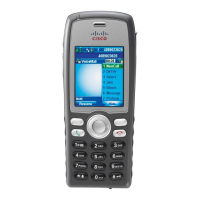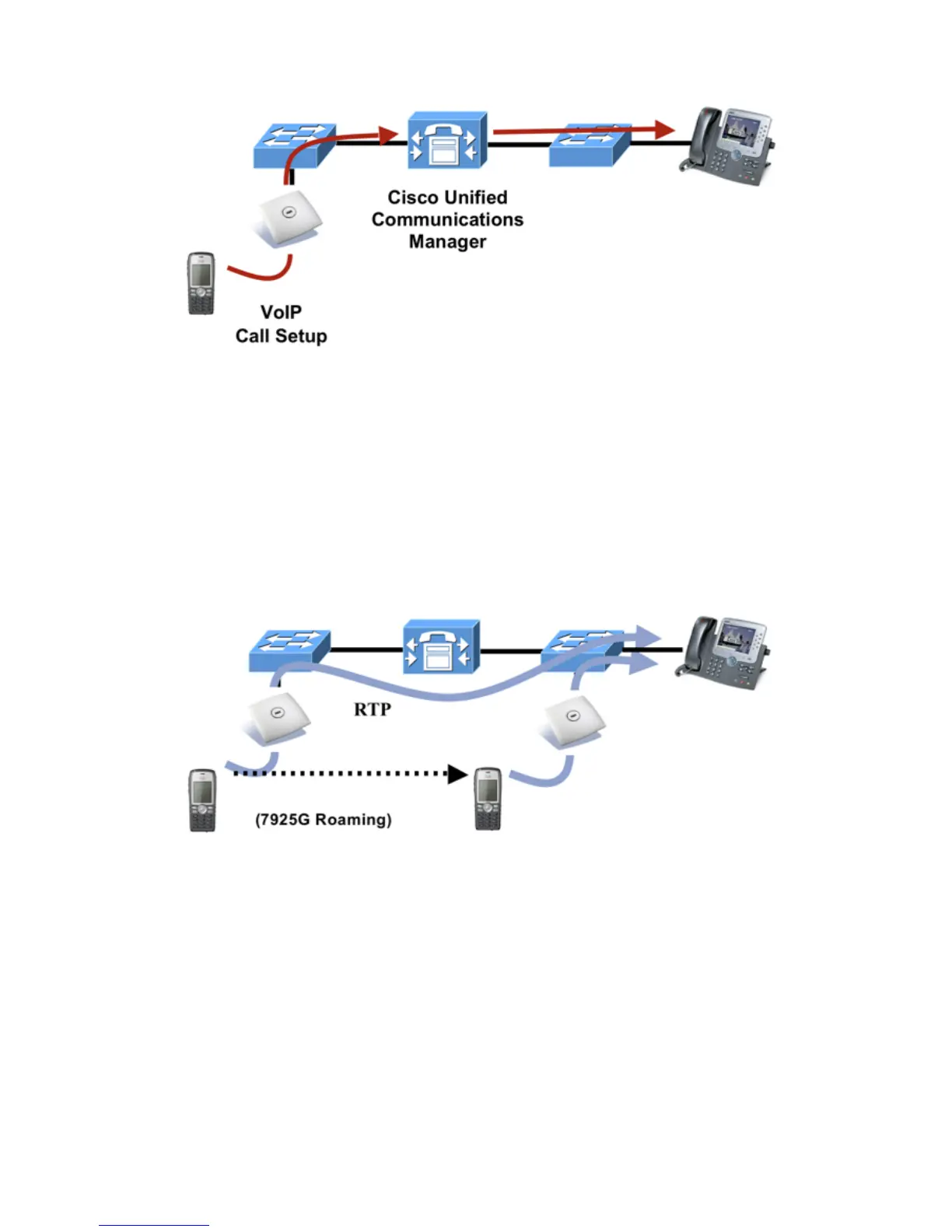Roaming Admission Control
During a call, the Cisco Unified Wireless IP Phone 7925G, 7925G-EX, and 7926G measure Received Signal Strength Indicator
(RSSI) and Packet Error Rate (PER) values for the current and all available access points to make roaming decisions.
If the original access point where the call was established had Call Admission Control (TSPEC) enabled, then the Cisco Unified
Wireless IP Phone 7925G, 7925G-EX, and 7926G will send an ADDTS request during the roam to the new access point, which
embedded in the reassociation request frame.
Traffic Classification (TCLAS)
Traffic Classification (TCLAS) helps to ensure that the access point properly classifies voice packets.
Without proper classification, voice packets will be treated as best effort, which will defeat the purpose of TSPEC and QoS in
general.
TCP and UDP port information will be used to set the UP (User Priority) value.
The previous method of classification depends upon preservation of DSCP value throughout the network, where the DSCP
value maps to a particular queue (BE, BK, VI, VO).
However, the DSCP values are not always preserved as this can be viewed as a security risk.
TCLAS is supported in the Cisco Unified Wireless LAN Controller release 5.1.151.0 and later.

